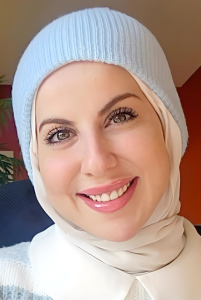By Gary Knight, CEO, WOLF
The most recent report on workforce gender split in the Middle East shows only 19% are women. This perhaps surprising World Bank statistic evidences one of the lowest percentages in the world, highlighting the struggle that women face when vying for jobs against their male counterparts.
Of course, this percentage varies by country, but several nations in the region have similar statistics. Only 15% of the labour force is female in Jordan, notwithstanding Jordan boasting one of the highest regional female literacy rates. However, several Middle Eastern countries buck the trend and show a progressive and encouraging split, with a 60% female labour force in Qatar and 55% in the UAE.
The lower figures also reflect the unemployment rate among Arab women, which at 42.5% is three times the average of the global unemployment rate of 14.9% and almost twice that of Arab men at 25%.
So what can countries like Jordan, who are lagging behind, do to change the workforce balance and how can women be encouraged, supported and taken seriously in the more traditionally male dominant roles?
WOLF, a British start-up which operates its business in the Middle East, with offices in Jordan, London and Newcastle, is determined to be part of the story to improve gender parity in the technology sector and already boasts a high percentage of female employees in its offices.
Gary Knight, WOLF CEO, explains why the company is proud to be bucking the current female employment trend, especially in WOLF’s regional Amman office. “The tech industry stands out as one of the few fields where women aren’t bound by the same limitations they face elsewhere, thanks to its merit-based culture. The inherent flexibility also empowers women, regardless of their personal commitments, to achieve their ultimate potential.
“More and more young people, regardless of gender, have access to technology, and therefore it’s clear that a greater number of female tech professionals can make a significant impact and serve as inspirational figures for the next generation.
“We are delighted that over 50% of our colleagues in the Jordan office are female. The company’s inclusive culture ensures women are empowered in their roles, which span technical, content, communications and community support jobs.
“Shining a light on women in the industry will allow for future female talents to access more training courses and mentorship, thereby continuing to play a role in championing women in the tech industry.”
WOLF’s Amman female colleagues also support the company’s ethos regarding gender parity in tech.
 Nermeen Mattar, left, a senior frontend engineer at WOLF, says “I’m an engineer with over seven years’ experience developing apps across various industries. Among them, my favourite has been WOLF. I’m drawn to the collaborative atmosphere, supportive team members, engaging projects, and the recognition of hard work. To me, it signifies that WOLF recognises the abundance of talented women capable of bringing valuable contributions, creative ideas, loyalty, and enthusiasm to the company.”
Nermeen Mattar, left, a senior frontend engineer at WOLF, says “I’m an engineer with over seven years’ experience developing apps across various industries. Among them, my favourite has been WOLF. I’m drawn to the collaborative atmosphere, supportive team members, engaging projects, and the recognition of hard work. To me, it signifies that WOLF recognises the abundance of talented women capable of bringing valuable contributions, creative ideas, loyalty, and enthusiasm to the company.”
Another Amman colleague, Alhan Almadani, below, who is Head of WOLF Communications Department, says: “I began working for WOLF almost four years ago as a communications officer. Since then, I’ve gained a lot of experience and honed my leadership abilities, and was promoted to Head of Communications. Leading the department brings thrilling challenges, fostering my growth and allowing me to reach my full potential. I’m proud to be part of a company that empowers women and offers them a healthy environment to grow and become leaders in their field of expertise.”
Gary says “We hope by taking the opportunity to highlight our fantastic female colleagues on International Women’s Day 2024, we continue to encourage youngsters in the region to consider the technology industry as one that will support, nurture and champion females in the sector.”


